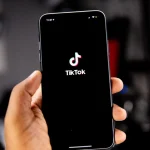In the age of digital dominance, it’s no secret that Big Tech wields immense power over the flow of information. But is there an underlying bias against conservative viewpoints? Let’s dive into the evidence and what it means for free speech in America.
Censorship and Shadow Banning
Conservatives have long claimed that social media giants like Facebook, Twitter, and YouTube are systematically silencing their voices. Shadow banning—where content is hidden from users without their knowledge—has been a recurrent allegation. Reports of conservative accounts losing followers overnight or having their reach drastically reduced are common. While these platforms deny any bias, the patterns suggest otherwise.
Selective Fact-Checking
Another tactic employed by Big Tech is the selective application of “fact-checking.” Conservative news outlets and personalities often find their posts labeled as false or misleading, even when presenting well-supported arguments. Meanwhile, liberal counterparts frequently escape such scrutiny. This double standard stifles conservative discourse, pushing it to the fringes of the internet.
Deplatforming
High-profile deplatforming cases, such as the removal of former President Donald Trump from Twitter and Facebook, have highlighted the power Big Tech holds. These actions are often justified under the guise of preventing misinformation or hate speech. However, the criteria for these decisions remain opaque and inconsistently applied, leaving many conservatives feeling targeted and marginalized.
Algorithmic Bias
Algorithms are the invisible hand guiding what we see online. Numerous studies have shown that these algorithms tend to favor liberal viewpoints, pushing conservative content to the bottom of the feed. This bias not only skews public perception but also impacts the revenue of conservative creators who rely on engagement for their livelihood.
Conservative Emails in Spam Folders
Email platforms like Gmail have also come under scrutiny for their handling of conservative content. Many conservative groups have reported that their emails frequently end up in spam folders, reducing their reach and impact. This problem isn’t merely anecdotal; studies have found that Gmail is significantly more likely to mark emails from conservative sources as spam compared to those from liberal sources. This bias in email filtering algorithms means conservative campaigns and organizations face an uphill battle in getting their messages to supporters and potential voters.
The Power of Big Tech Monopolies
The monopoly of Big Tech companies like Google, Facebook, and Twitter over online communication gives them unprecedented control over public discourse. Unlike traditional media, where diverse ownership provides a range of perspectives, the centralization of social media platforms creates an echo chamber that amplifies certain viewpoints while drowning out others.
Legal Battles and Legislation
In response to perceived biases, conservatives have turned to the courts and legislatures. States like Florida and Texas have passed laws aiming to curtail Big Tech’s ability to censor political speech. These legal battles are crucial in determining the future of free speech in the digital age and ensuring that conservative voices have a fair platform.
The evidence of Big Tech’s bias against conservatives is compelling. From shadow banning and selective fact-checking to deplatforming, algorithmic manipulation, and biased email filtering, the scales are tipped against conservative viewpoints. As legal battles unfold and public awareness grows, the fight for a balanced and fair digital public square continues.




